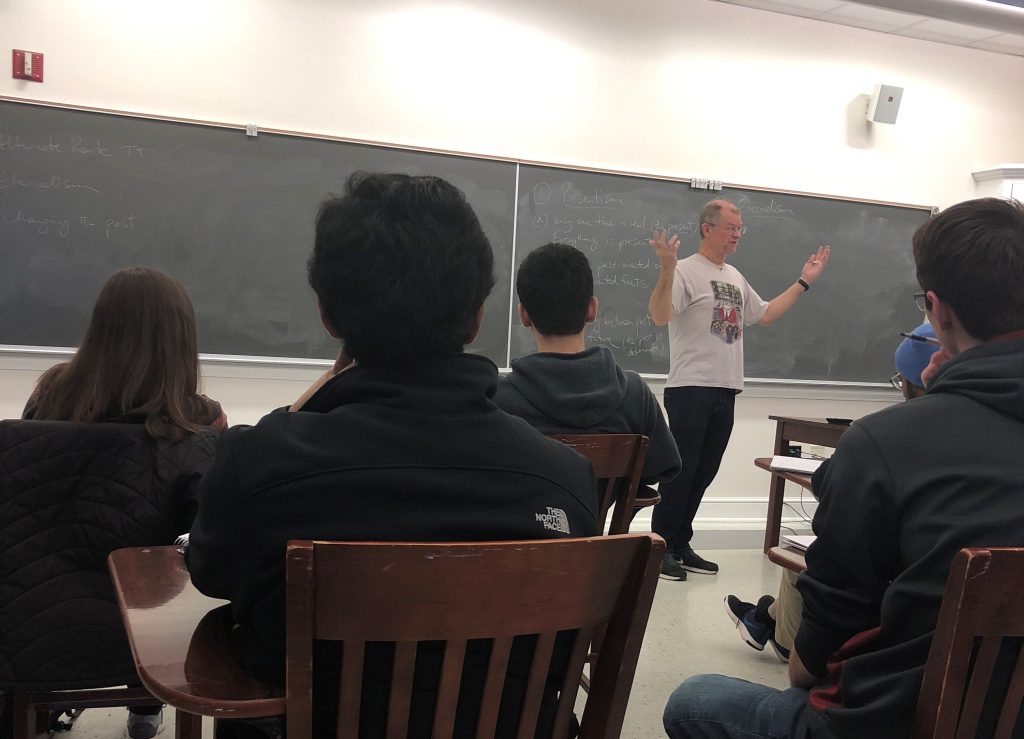
UDHP Professor Richard Hanley teaches classes on philosophy and specializes in connecting philosophy to pop culture and science fiction. He believes in the importance of philosophy in applications to ordinary life, and a few of his classes center on popular shows such as Star Trek and South Park. However, his upper-level philosophy class this semester, Time Travel (PHIL316-080), explores the notion of time travel from both scientific and philosophical perspectives. I sat in on the class and attempted to wrap my head around the possible science behind time travel as well as the theories of time and space. While the material was challenging and thought provoking, I’d definitely recommend the class to anyone who’s willing to step outside their comfort zone and think outside of the box.
The class, as I learned, analyzes two possible methods of time travel – alternate route and embedded – and their implications, risks, and plausibility. Then it delves into three schools of thought regarding the existence of past, present, and future: Presentism, Eternalism, and Growing Block. The theory of Presentism states that only one time is real, the present, so, thus, both the past and the future are not real. In regards to this view, the passage of time is constructive and constantly dynamic. On the other hand, the theory of Eternalism believes that all three times simultaneously exist. In this view, the passage of time is neither destructive, nor is it dynamic; it is merely a creative process. To Eternalists, time and space are interconnected, so everything that moves in time also moves in space, an important notion to remember when discussing time travel from the Eternalist perspective. Lastly, the Growing Block school of thought draws from both of the other views, in that it believes in the existence of the past and the present, but not the future. According to this view, the passage of time is dynamic, as time passes, the world gets bigger and bigger.
Professor Hanley explores and analyzes the possibility of all three views and the implications of each on religion, free will, and personal identity. “Philosophy is incredibly important to ordinary life, and I try to invoke relevant examples when teaching it,” Hanley explained. “However, this is not an easy A class. It will get even the most brilliant science and engineering students to use their brain in a theoretical way they are not used to at all.”
So does free will exist? Is time travel possible? As of right now, I don’t have a definite answer, but maybe I will go back in time, re-write this article, and let you know. Discover Dr. Hanley’s courses for yourself – https://www.philosophy.udel.edu/faculty-staff/faculty/Richard
Article by Katie Kornienko ’20
